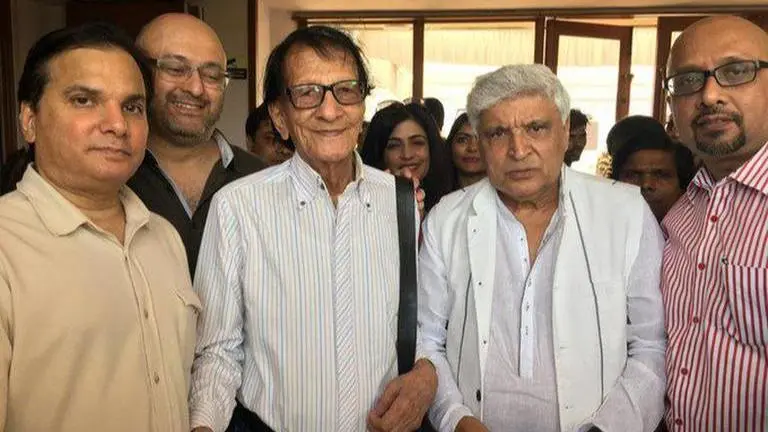Updated 31 May 2020 at 14:43 IST
Why lyricist Yogesh dropped his surname
Lyricist Yogesh came to Bombay from Lucknow in 1950s in search of work after his father's death and in an effort to make a mark in the film industry on his own he decided to get rid of his surname -- Gaur, according to a book. Yogesh had a cousin in the tinsel town, popular screenwriter of the time, Vrajendra Gaur, but he didn't want to be accused by him of exploiting his connection for work.
- Entertainment News
- 3 min read

Lyricist Yogesh came to Bombay from Lucknow in 1950s in search of work after his father's death and in an effort to make a mark in the film industry on his own he decided to get rid of his surname -- Gaur, according to a book.
Yogesh had a cousin in the tinsel town, popular screenwriter of the time, Vrajendra Gaur, but he didn't want to be accused by him of exploiting his connection for work.
The claim finds a mention in Main Shayar Toh Nahin, a book on Hindi film lyricists penned by veteran journalist Rajiv Vijaykar and published by HarperCollins India.
The venerated Hindi lyricist passed away on Friday at the age of 77. He has left behind an array of songs, those commended for quality lyrics such as Kahin Door Jab Din Dhal Jaaye, Rajnigandha Phool Tumhare and Rimjhim Gire Saawan .
Yogesh Gaur had come to Bombay from Lucknow after his father's death. He had no help from his cousin, the popular screenwriter Vrajendra Gaur, but he was supported by a close friend until he found work.
He lived alone in a chawl (buildings with rooms having common toilets) and got rid of his surname, so that his cousin could never accuse him of exploiting their connection for work, the book states.
Vijaykar writes that Yogesh's flair for memorising poetry since schooldays had made him consider writing scripts, dialogues and songs as a career choice.
His mother had been extremely fond of poetry and he had been brought up in the literary culture of Lucknow, so he began to try writing songs. He recited verses to his neighbours, who loved them and refused, in some cases, to believe that he had written them, according to the book.
The book also mentions some other anecdotes from the life of the songwriter.
Having started work in films in early 1960s, Yogesh collaborated with legendry lyricist Shailendra but success and fame were still elusive.
After Shailendra's demise in late 1960s, a down and out Yogesh got connected with master composer Salil Chowdhury, who too was hoping to make a comeback. That's when Anand happened.
In the late 60s, with Shailendra gone, Sabita (a friend of Yogesh and wife of Salil Chowdhury) recommended him to her husband who was attempting a comeback with Anand'. Yogesh admits that he had returned to Lucknow, disillusioned that he was not making good progress and was stuck with small films, states the book.
The 1971 film, helmed by Hrishikesh Mukherjee and starring Rajesh Khanna, Amitabh Bachchan and Sumita Sanyal, was a superhit. It swept half a dozen Filmfare awards besides the National Film Award for the Best Film.
"Anand" did really well, and Yogesh's career was secured. He formed a team with Salil Chowdhury and with filmmaker Hrishikesh Mukherjee ( Sabse Bada Sukh', Mili', Rang Birangi', and Kisise Na Kehna')."
On the music front, the film didn't won any awards, but songs like Zindagi Kaisi Hai Paheli Haay and Kahin Dur Jab Din Dhal Jaaye had catapulted Yogesh to the spotlight.The other songs of the film were penned by Gulzar.
Basu Chatterjee had heard his songs and wanted him for Us Paar and Rajnigandha.Till Pratiksha' (unreleased in the 90s), Chatterjee's last film, Yogesh wrote for most of his movies, including Chhoti Si Baat', Priyatama', Dillagi', Manzil', Baaton Baaton Mein', Apne Paraye' and Shaukeen', the book adds.
Image credit: Twitter/@IPRSmusic
Advertisement
Published By : Press Trust Of India
Published On: 31 May 2020 at 14:43 IST
